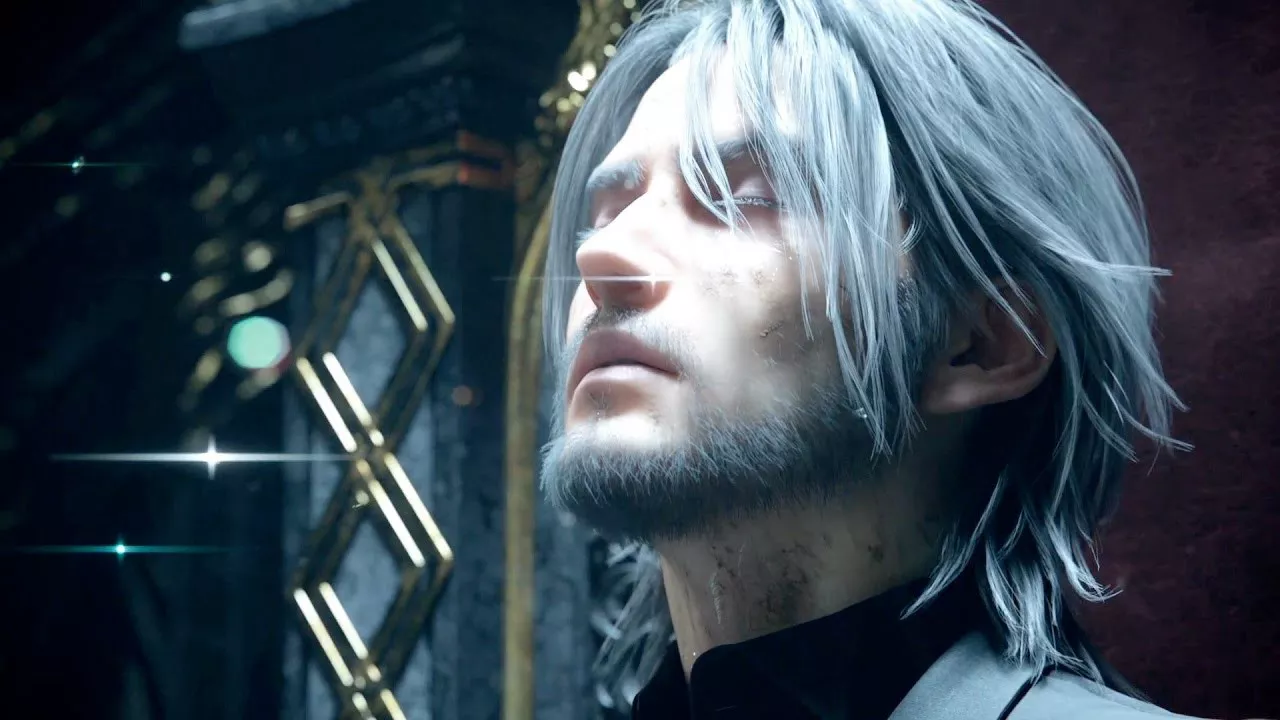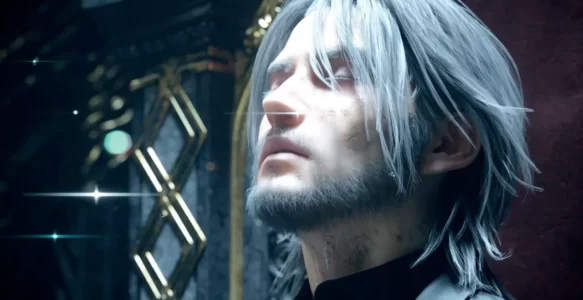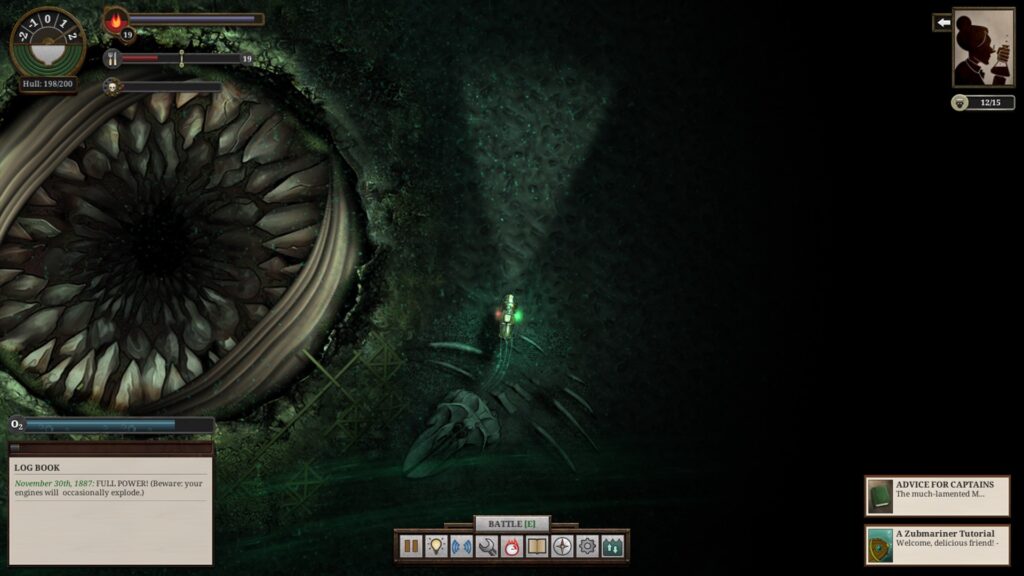Note: this article on Final Fantasy XV was edited, cut and polished for publication on Medium. It contains SPOILERS!
Final Fantasy XV is, for many reasons, a breaking point in a beloved game series which enchanted millions. It had the potential to be grand; here, I’ll explain why it fell short of its promises.
Just like my story on NieR: Automata, this reflection may come a little late for the Internet. But I hope it can still find its own purpose for someone out there.
If you’re a fan of its parent JRPG series, you probably bought Final Fantasy XV as it *finally* landed on the market. After ten years of dragged development and hopeful anticipation.
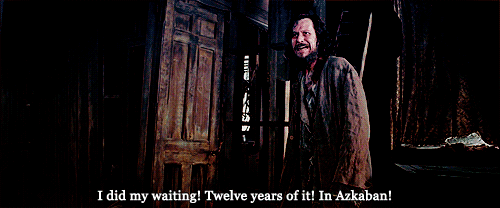
Some of us loved it. Intuitively enough, I am among the ones who have something to say — in the other direction entirely.
Final Fantasy XV is a bittersweet case of wasted potential. But why?
Final Fantasy XV: Art & Video Game Writing
Let me get this straight: Final Fantasy XVmay have its flaws, but it is a sweet melody to the eyes and a joy for the senses — on occasions. I’m not here to question its artistic beauty, the care behind the soundtrack’s composition, or its environmental design. This picture alone should speak for that.
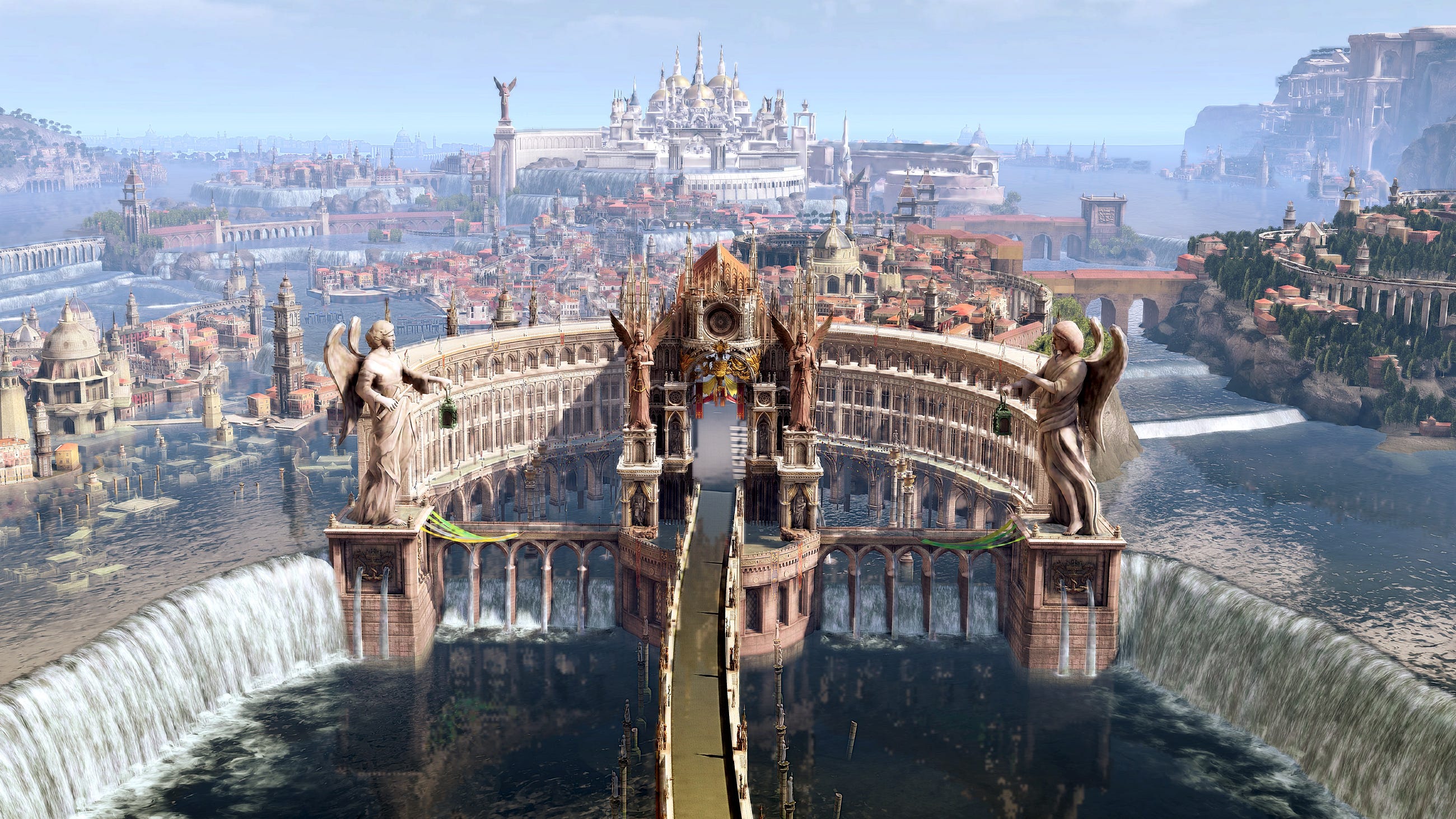
The game‘s biggest problem doesn’t lie in its art design, and even gameplay-wise the experience can be enjoyable. Simply put, Final Fantasy XV fails to deliver interesting characters within a complex plot. It lacks coherency from the get go, leading its characters to make questionable choices (such as making a lot of noise around Eos, despite the need to hide from the Empire).
The foursome never stops to question Ardyn’s motives, and yet surprises when he reveals his true nature of backstabbing hypocrite, as if we couldn’t see it coming from the start. Two mere examples in a plethora of other similarly embarrassing and illogical situations.
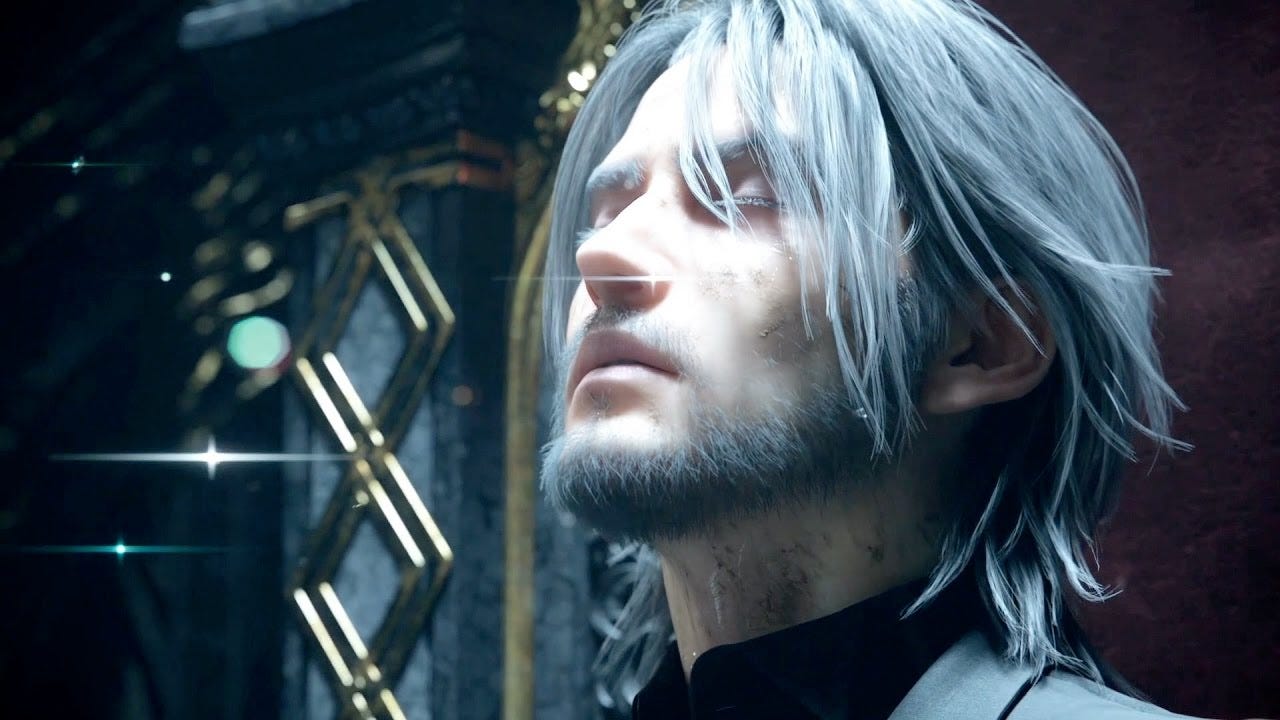
Yet, the story shows good potential towards the end, when it unleashes a tiny slice of its beauty in the last two chapters. The post-Crystal world showcases conscious, agonising, apocalyptic design, the game doesn’t explain it nor tells it the way it should. Even the ending itself is a heartwarming epilogue for Prince Noctis, the legitimate heir of Lucis.
What Final Fantasy XV is lacking is coherent, well-planned and well-designed character development.
Prince Who of What?
Final Fantasy XV’s biggest narrative issue resides precisely in its characters. Even just a better care on the characters’ side could have led to a better told (and overall more compelling) story. Because good stories stimulate thought—great stories pull your heart’s strings with unforgettable characters.
Noctis should act like an immature prince, slowly reaching out to his true nature. But his evolution doesn’t start until the end of Chapter
As for Gladio, Prompto and Ignis, the three of them are less than a shade of a flat sidekick for most of the game, with a spark of good writing on Ignis’ side only toward the end of the adventure. Gladio’s intent to push Noctis forward becomes plain annoying, and Prompto… Well, do I really need to talk about Prompto?
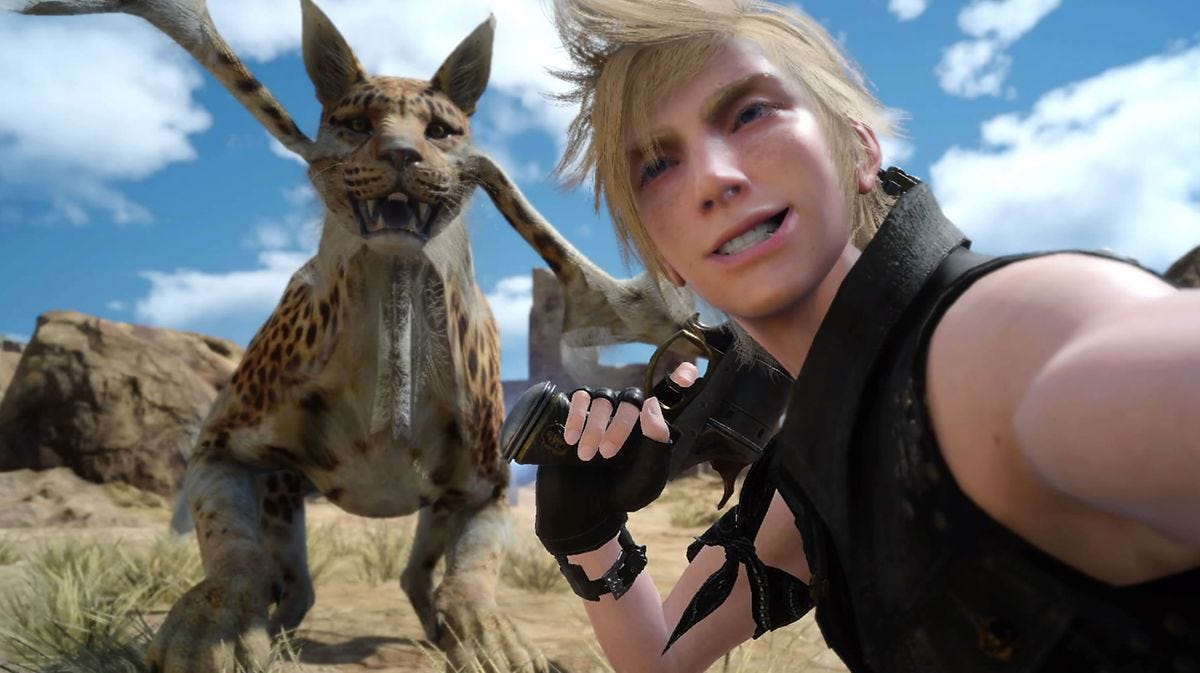
Overall, the game fails to deliver solid backstory for all of his protagonists: all the characters involved are sheer avatars on screen, and, as a result, players don’t have the chance to empathise with them. The same happens with Lunafreya, who fades away before we can love her enough to care; but the game later delivers a long sequence of flashbacks meant to shed light on the relationship between her and Noctis, and the player starts to understand a little more of the characters in-game. As fascinating as they might have been, these scenes land too late, or at the wrong time to actually mean something for the player.
Instead, we are just asked to blindly follow Noctis and his friends in their journey, knowing little to nothing of their motivations, their background, or their most inner wishes, needs, and desires. It is true that there is an expanded universe behind Final Fantasy XV, built on the movie Kingsglaive, a comic book, a mangaand more—yet, the game fails to integrate them in its story, assuming all players have followed the expanded universe on their own and have a clear idea of the world they’re exploring.
And Ardyn? Ardyn is a fascinating villain with a powerful back story, possibly one of the most interesting characters in the game. However, he is as flat as the rest of the plot; a figure whose significance we can only graze during the course of our adventure, and whose most inner fears, desires, weaknesses and needs we can’t explore in depth.
(Non)Interactive Narrative
Yet, video games are not entirely about stories—although they increasingly enjoy telling them in unexpected and mature ways. They are about how our in-game actions intertwine with that story, and how we can potentially influence the outcome, ifgiven the choice. So, I can totally understand players who wouldn’t bother about Final Fantasy XV’s plotholes, or about its poor writing.
The problem, here, is that Final Fantasy XVis not even a well-designed interactive story.
The player has almost no power in the way the events unfold, and every apparent “choice” is ultimately pointless to him and the characters involved. It doesn’t matter how you decide to reply to Luna’s messages in Umbra’s journal — the outcome will always be the same. The player has no way of influencing the story itself, and, instead, is tricked into making choices which will have no meaning over the overall experience. One exception applies: the dialogue with the Prime Minister of Altissia, showing the potential of what this game could have been.
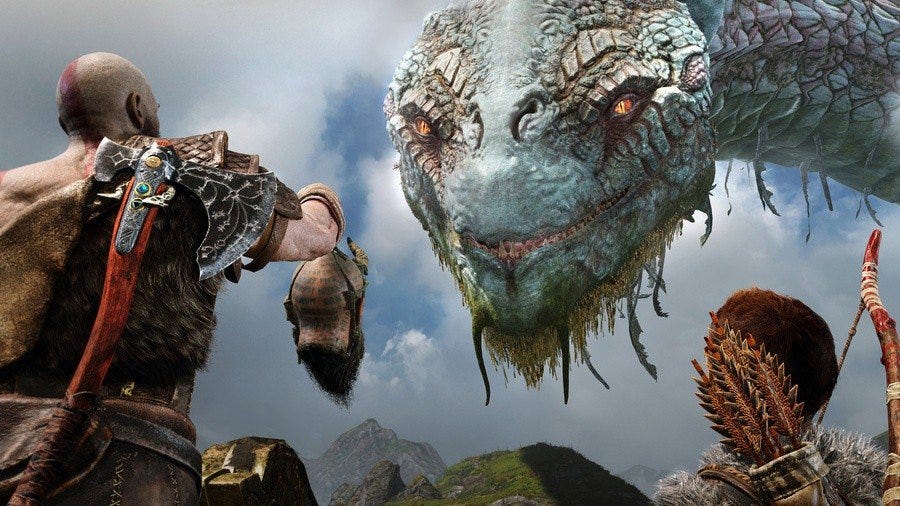
There’s nothing wrong in leading the player by his hand — the recent God of Wardoes it, and in a surprisingly brilliant way. However, in Final Fantasy XV, the developers willingly decided to give players a chance to “roleplay” Noctis with a few dialogue choices; most of which will just allow the player to listen to a different line of dialogue, and nothing more than that. There is no karma variable, no relationship with Luna, Gladio, Ignis or Prompto, no indicator on screen that suggests an evolving connection with any of the main characters.
Final Fantasy XV gives you an illusion of power, this way restricting its potential interactivity and immersiveness to mere action-RPG gameplay mechanics.
It needn’t be different, however: a video game doesn’t need to have branching narrative or interactive plot-choices, to be consistent. If it gives me the chance to “roleplay” my main character, however, I do expect a certain degree of control over the story at hand — even if such control is just the bare minimum.
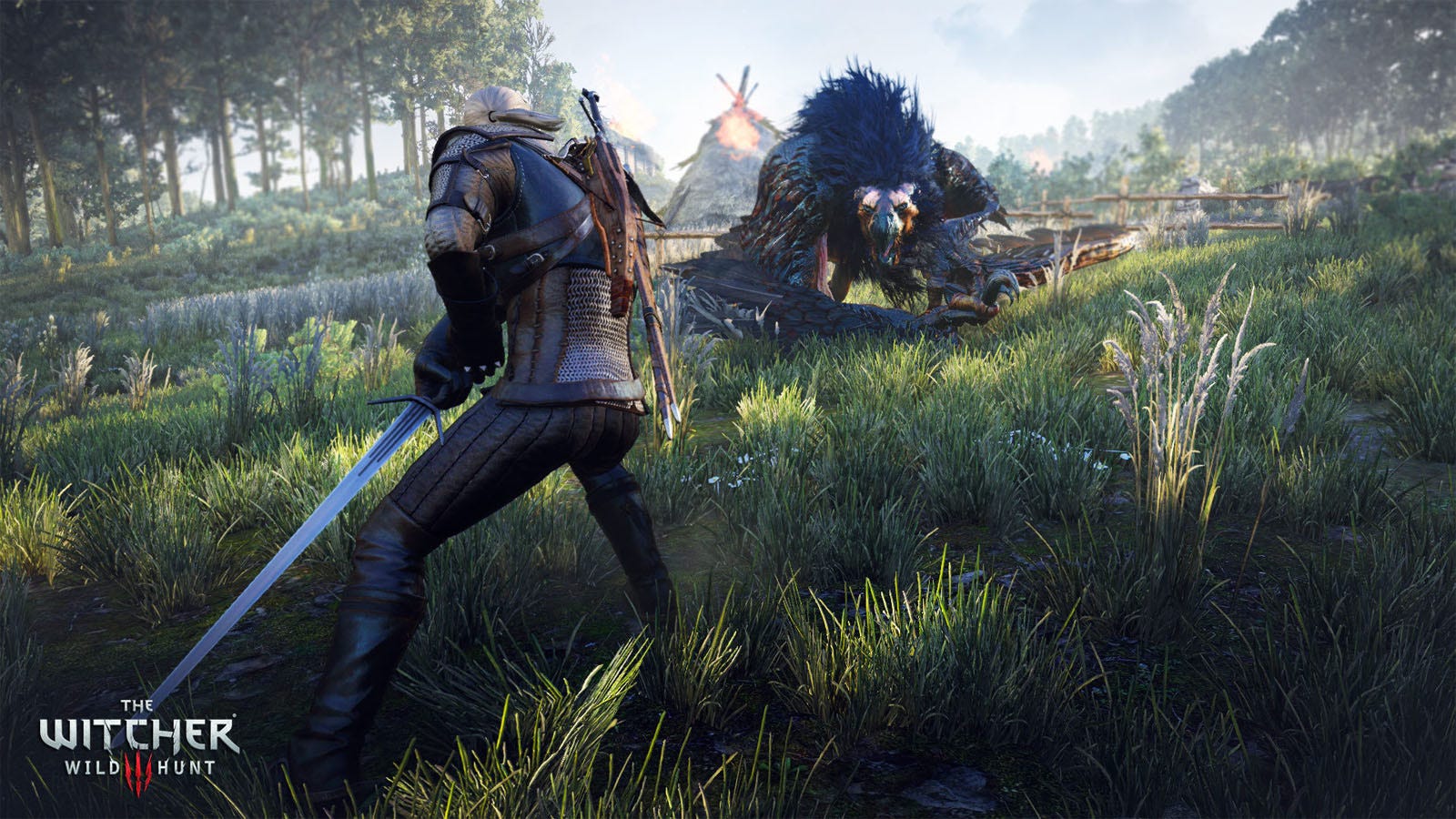
As we approach the end of the story, we realise that Final Fantasy XV’s ambition was the cause of its mediocrity. There was certainly a great concept idea behind the whole story — but it wasn’t pursued until the very end, due to poor planning or a lack of physical time.
And it is with a torn heart that I say all this, as Final Fantasy is easily one of my favorite video game series of all time.
Originally published on http://anthonywolfwriter.com on August 12, 2018.

